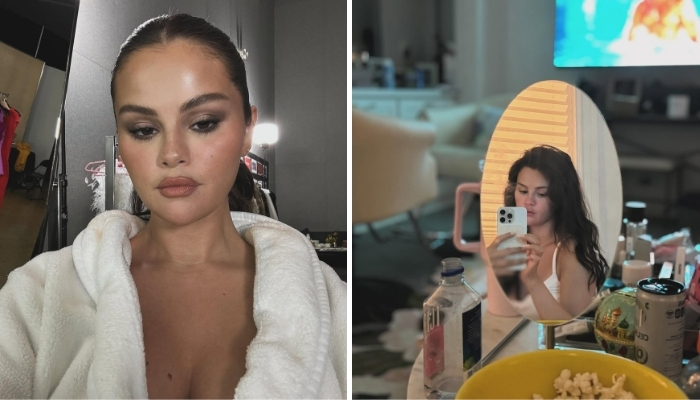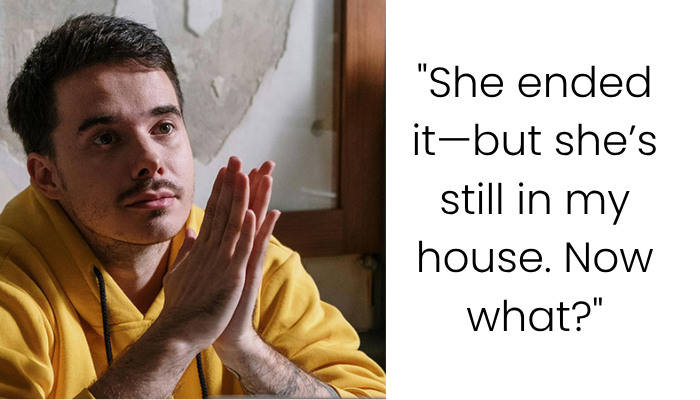9 Powerful Mental Health Lessons I Learned From Selena Gomez’s New ‘Vanity Fair’ Interview

Selena Gomez is not just a world-famous singer, Emmy-nominated actress, and the most-followed woman on Instagram—with over 424 million followers—she’s also a strong voice for mental and physical health. Even with her massive success, Selena has faced serious health challenges. In 2015, she shared with Billboard that she was diagnosed with lupus, a chronic autoimmune disease that causes the body to attack its own healthy tissues. Lupus can lead to severe pain, swelling, and inflammation in many parts of the body.
In 2020, she also revealed during an Instagram Live with Miley Cyrus on Bright Minded that she was diagnosed with bipolar disorder, a mental health condition that causes extreme mood swings. Through her journey, Selena has stayed open and honest, helping others feel less alone. In her powerful September 2024 Vanity Fair cover story, she once again shared deep emotional lessons, showing her strength and vulnerability.
Advertisement – Continue Reading Below
Selena Gomez’s strength truly shines in her Vanity Fair interview. Her story is not just inspiring—it’s full of real-life wisdom that many of us can relate to. As someone living with Crohn’s disease, another autoimmune disorder, I personally connected with her journey. Like Selena, I’ve faced emotional ups and downs due to my health. That’s why her words hit home—I even took notes while reading.
If you’ve ever struggled with chronic illness or mental health challenges, Selena’s story offers hope and healing. Keep reading to discover nine powerful mental health lessons from her most recent interview that may help you on your own journey to better emotional wellness.
1. Talk about people you love more than you talk about yourself
You know those people who act like the world revolves around them? Selena Gomez isn’t one of them. Her Emilia Pérez co-star, Zoe Saldaña, told Vanity Fair that Selena doesn’t enjoy being around people who only talk about themselves. “Selena’s not like that,” Zoe said. “She’ll happily show you hundreds of photos of her little sister, parents, and grandparents. Her heart is with her family.”

Advertisement – Continue Reading Below
Showing love and appreciation for others isn’t just kind—it’s good for your health. According to research by Kory Floyd, a professor at Arizona State University, expressing affection—through a hug, kind words, or even writing a heartfelt note—can actually improve your mental and physical health. It helps reduce stress, lowers cortisol levels, boosts the immune system, and even improves heart health and brain function.
In fact, people who regularly express affection have lower blood pressure, feel less stressed, and enjoy better moods overall. That means kindness isn’t just for others—it’s self-care, too.
2. Give yourself grace if you don’t make your goals
You’ve probably met people who think everything is about them—but Selena Gomez isn’t one of those people. Her Emilia Pérez co-star, Zoe Saldaña, told Vanity Fair that Selena doesn’t like being around people who only talk about themselves. “Selena’s not like that,” Zoe shared. “She’ll gladly show you hundreds of pictures of her little sister, her parents, and her grandparents. Her love for her family really shows.”
Advertisement – Continue Reading Below

Advertisement – Continue Reading Below
What’s amazing is that showing love and care for others isn’t just nice—it actually helps your own health. Studies by Kory Floyd, a professor at Arizona State University, show that expressing affection—whether it’s hugging, giving compliments, or writing kind messages—can improve both mental health and physical wellness. It helps reduce stress, lowers cortisol (the stress hormone), supports the immune system, improves heart health, and sharpens brain function.
People who express affection often feel calmer, have lower blood pressure, and enjoy better moods. So when you show love, you’re not just helping others—you’re also taking care of yourself.
3. Find relationships that feel like light
In her Vanity Fair interview, Selena Gomez also opened up about her romantic relationship with music producer Benny Blanco. “I’ve never been loved this way,” Selena said. “He’s been such a light in my life—my best friend. I love sharing everything with him.” She also talked about her deep friendship with Taylor Swift, who she turns to for advice about music, friendships, and even reality TV. “She’s like a big sister to me,” Selena shared.

Advertisement – Continue Reading Below
These meaningful connections show the power of healthy relationships. On the other hand, toxic people—like manipulative friends, negative coworkers, or narcissistic partners—can drain your energy, ignore your boundaries, and leave you feeling emotionally exhausted.
Building strong relationships with people who show trust, honesty, empathy, and emotional support is key to your mental and physical well-being. Studies show that positive relationships can reduce stress, boost happiness, and even improve heart health.
Advertisement – Continue Reading Below
It’s important to take a look at who you surround yourself with. Let go of relationships that no longer serve your growth, and make room for the people who genuinely lift you up and support your journey to a healthier, happier life.
4. Grief is not just for losing loved ones; it’s also for what we thought our lives would look like
Even before her relationship with Benny Blanco, Selena Gomez had dreams of starting a family by age 35. But in her Vanity Fair interview, she shared something deeply personal. “I’ve never said this before,” she revealed, “but I unfortunately can’t carry my own children.” Due to serious medical issues, pregnancy would be risky for both her and the baby. “That was something I had to grieve for a while,” she said. “It’s not the way I pictured it. I thought it would happen naturally, like it does for most people. But I’m in a much better place with it now.”
This kind of grief is real—and it doesn’t always come from losing a person. Grieving can also mean mourning the life you hoped for: not being able to have children, losing a long-term relationship, or stepping away from a dream job or personal goal. When your life takes a different path than you expected, it can be heartbreaking.
Advertisement – Continue Reading Below
But healing starts with acceptance. Letting go of what could have been and giving yourself space for self-compassion and emotional healing helps you move forward. Life doesn’t always go according to plan, and that’s okay. What matters is allowing yourself to feel, to grieve, and to keep hope for new possibilities.
5. Being vulnerable is one of the strongest things you can do
The 2022 documentary Selena Gomez: My Mind & Me was originally planned as a fun, behind-the-scenes look at her Revival Tour. But instead, it became a powerful and emotional film that showed her real struggles with panic attacks, anxiety, and clinical depression. In her Vanity Fair interview, Selena shared, “My mind was not right—it was chemically imbalanced. It was really hard.” She added, “People called me a victim, and that frustrated me. Being vulnerable is actually one of the strongest things you can do… I have tough days like anyone else, but I’m not a victim. I’ve just survived a lot.”

Advertisement – Continue Reading Below
Vulnerability is often seen as weakness, but in truth, it’s a powerful strength. According to psychologist and best-selling author Brené Brown, vulnerability is at the heart of both painful emotions like fear and grief, and beautiful ones like love, connection, and joy. When we avoid being vulnerable, we also block out the chance to experience deep meaning and personal growth.
Advertisement – Continue Reading Below
Being open—whether you’re sharing your story, asking for help, or speaking your truth in a relationship—can improve your self-awareness, boost emotional intelligence, and lead to more authentic and supportive relationships. Like Selena, allowing yourself to be vulnerable is a step toward healing and discovering your true self.
6. Temperature is a healing mechanism
Selena Gomez is still on her mental health journey, but she’s found helpful tools and habits to take care of herself. In her Vanity Fair interview, she shared that she uses temperature therapy as part of her self-care. Sometimes, she finds comfort in cold water—other times, she relaxes with space heaters. This simple practice helps her feel better both mentally and physically.

Advertisement – Continue Reading Below
Research backs this up. A 2021 study found that cold exposure—like cold plunges or cold showers—can boost your mood, reduce stress, and improve overall emotional well-being. Another study from 2023 showed that whole-body heat therapy, like spending time in a sauna, may help people dealing with depression.
Even better? You can combine the two. This technique, called contrast therapy, involves switching between hot and cold treatments—like going from a hot bath to a cold shower or doing a sauna session followed by a cold plunge. It’s been shown to reduce cortisol levels (the stress hormone) and support serotonin production, which is key for a good mood.
Advertisement – Continue Reading Below
7. Reminding yourself that you’re OK is a powerful tool
Selena Gomez also shared one powerful mental health technique she uses when she feels overwhelmed. “I remind myself that I’m OK,” she told Vanity Fair. “I take a moment to ground myself. I ask, ‘Where am I? I’m sitting in the office. The people I love are safe. There’s food. I can rest if I need to.’ I bring myself back to the present.”
Having simple self-care tools ready can help you quickly recognize negative thoughts and shift your mindset. Sometimes, just pausing during your day to check in with your body and mind is enough to reset your focus and ease anxiety.

Advertisement – Continue Reading Below
Research shows that self-affirmations—like reminding yourself of your strengths—can reduce stress, increase happiness, and add meaning to your life. A study published in Frontiers in Psychology also found that improving your mindfulness skills (being fully present in the moment) helps ease symptoms of anxiety and depression.
In addition to positive affirmations, you can try deep breathing, gentle movement like yoga or stretching, or grounding exercises like the 5-4-3-2-1 technique. This method helps bring your attention back to what you can see, hear, touch, smell, and taste, helping you feel calm and centered.
Advertisement – Continue Reading Below
8. Mental health care should be more accessible
Selena Gomez is using her platform to make a real difference through her beauty brand. Her company, Rare Beauty, donates part of its profits to the Rare Impact Fund, which is working to raise $100 million to support mental health education and resources for young people around the world. “So many people everywhere are struggling with mental health, but they don’t have the right information or know where to get help,” Selena told Vanity Fair. “I want it to be easy to access.

Advertisement – Continue Reading Below
Like how we have Planned Parenthood for women’s health—I wish we had something like that for mental health. I have big dreams for what this could be.”
Selena’s vision is especially important in light of the current mental health crisis in the U.S. A report called America’s Mental Health 2018 revealed that more than 56% of Americans either seek or want to seek mental health services—for themselves or someone they love. But most people say it’s hard to get help. Nearly three out of four Americans believe that mental health care is not easily available, and 47% say there just aren’t enough options.
Still, there’s hope: 76% of Americans now believe that mental health is just as important as physical health. That’s a huge shift—and with advocates like Selena leading the way, awareness and access can continue to grow.
9. Let gratitude be your main motivation
Selena Gomez stays grounded by focusing on what she’s thankful for. “I don’t want people to ever think I’m not grateful for what I have,” she shared. Gratitude is a powerful mindset. When you take time to appreciate what’s already in your life, you naturally start to attract more positivity and joy.

Advertisement – Continue Reading Below
A study published in the Journal of Happiness Studies found that practicing gratitude regularly can boost your mental health and help you see life from a more positive and thankful point of view. Another study in Emotion Review showed that expressing gratitude can motivate you to take better care of yourself and make positive life changes. It also helps stop negative thought patterns by keeping your focus on the present moment.
According to Robert Emmons, a leading gratitude researcher from the University of California, Davis, there are two main parts to practicing gratitude:
- Recognizing the good things you’ve received, and
- Acknowledging the people or higher powers who helped you get there.
Simple ways to practice this include saying or writing down affirmations like, “I am thankful for…” or keeping a gratitude journal. You can also tell the people in your life how much you appreciate their support—small acts of thanks can go a long way for your own happiness and theirs.






